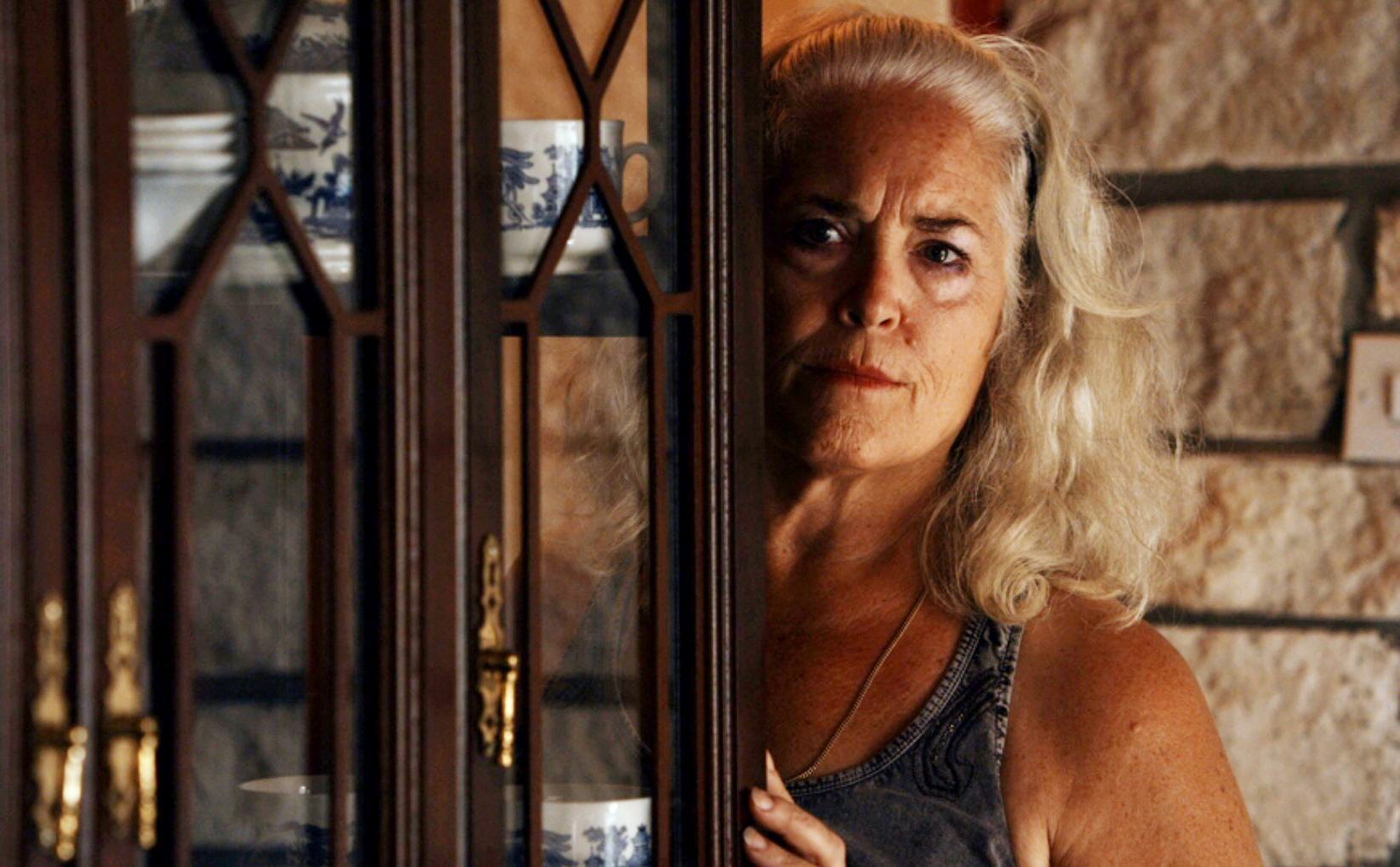
What must it like to feel so foreign in your own skin, so uncertain of your place in the world, that every outside sound rings wrong in your head? To walk into a room and see a nervously unasked question on every face, as if you’d just awakened from a long, terrible trance under which, perhaps, you’d done things you can’t remember? With his debut film Krisha—shot in nine days in his parents’ house and made on a piggybank budget—writer-director Trey Edward Shults collects the ambient rays of those feelings and packs them into a single movie, one that’s part character study, part family mystery, and part psychological horror story.
The Krisha of the title is a sixtyish hippie doyenne—she’s played by Shults’s aunt, Krisha Fairchild—who has returned to the family fold after a long absence, specifically to cook Thanksgiving dinner, but more broadly, to re-enter a sphere of people who love her but aren’t sure what to do with her. In the film’s early moments we see her pulling a rolly-bag through the streets of a dead-straight suburban neighborhood, her sandaled feet slapping the pavement aggressively; with her mane of moonlight hair and layers of floaty indigo cotton, she could be a Woman Who Runs with the Wolves. Her right index finger is heavily and mysteriously bandaged. She’s befuddled, understandably, by the lookalike nature of all these oh-so-perfect houses, muttering under her breath as she’s trying to discern one from another. When she finally makes it to the right one, Shults’s camera swoops through the door with her, into the wary, tentative embrace an extended family—a riot of sisters, in-laws, assorted nieces and nephews and dogs, and one radiant new infant—that means well but collectively has no idea what to make of her.
Krisha, we intuit, has wronged some of these people in the past, particularly one young man named Trey (played by Shults), who resists the excessive sunbeam of affection she shines on him. And before long, their tentativeness toward her—their “how’s she doing?” solicitousness, which seems to be intended more for their comfort than for hers—begins to wear her down. We start seeing, and hearing, her surroundings as she does: The clamorousness of a football game the guys are watching on TV registers as a sort of rainstorm of ping-pong balls on steel. (The movie’s percussive, out-there music is by Brian McComber; its clever sound design is by Johnny Marshall.) If this is what cracking up is like, Krisha makes it all too believable.
What really registers is how frustrating Krisha’s erratic, furtive behavior would be if she were part of your family—and how deeply sympathetic she is because, thankfully, she is not. Fairchild’s performance is key to the movie: Krisha is witty and chatty one moment, and shut down like a deserted fairground the next. We see dazzling warmth in her eyes, but also the terror of total system failure. Most of the people in Krisha are nonactors. (Shults’s own mother, Robyn Fairchild, plays Krisha’s cautiously supportive sister, Robyn.) Over the years Krisha Fairchild had done some acting in TV and movies, as well as voiceover work, but she got her big-little break when her nephew cast her in a 2014 short film, also called Krisha. That Krisha grew into this one, which won the Grand Jury Prize in 2015 at South-by-Southwest. If Shults didn’t look far to find some of his actors, he found the right one in Krisha Fairchild: In character she looks, probably, like someone you know, only both more radiant and more prismatically troubled. You’d like to think that if she showed up on your doorstep, you’d open your arms wide. You might, or you might not. The truth, as Krisha shows us, is that refugees from the land of the lost aren’t always so easy to take in.
More Must-Reads from TIME
- Breaking Down the 2024 Election Calendar
- How Nayib Bukele’s ‘Iron Fist’ Has Transformed El Salvador
- What if Ultra-Processed Foods Aren’t as Bad as You Think?
- How Ukraine Beat Russia in the Battle of the Black Sea
- Long COVID Looks Different in Kids
- How Project 2025 Would Jeopardize Americans’ Health
- What a $129 Frying Pan Says About America’s Eating Habits
- The 32 Most Anticipated Books of Fall 2024
Contact us at letters@time.com